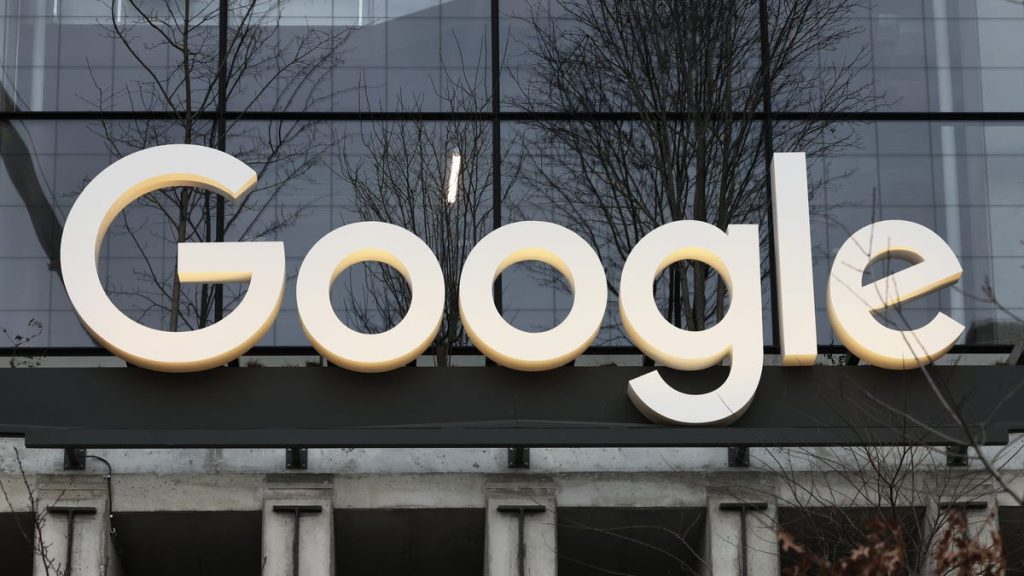The government is finally moving to break up Google’s search monopoly — just as the real battle has shifted to artificial intelligence.
In a Washington courtroom, the Justice Department is laying out its case for dismantling parts of Google’s empire, the culmination of an antitrust lawsuit first filed in 2020. But in the years since the original complaint focused on search engine dominance, the technological landscape has dramatically transformed. What began as a case about Google’s grip on search is now equally about preventing the tech giant from leveraging that position to control the next frontier: AI.
“This court’s remedy should be forward-looking and not ignore what is on the horizon,” David Dahlquist, the DOJ’s acting deputy director of antitrust civil litigation, said in his opening statement. The argument underscored that regulators fear they’re fighting yesterday’s war even as a new one unfolds.
Officials intend to seek a range of other remedies discussed in a court filing last month, including imposing data licensing requirements and requiring more transparency for advertisers on where their ads appear. The DOJ is also expected to demand “measures related to artificial intelligence and its Android smartphone operating system” that would likely stop Google from hoarding user data for both search results and AI products. That could pave the way for more users to opt their content out of AI training.
Bloomberg reports that in addition to banning Google’s exclusive default deals, the government might force Google to sell off Chrome, the world’s most popular browser.
Tech rivals have quickly positioned themselves for the potential aftermath. An OpenAI executive said the company would be interested in buying Chrome, giving the company an easy path to building an “AI-first” browsing experience that could transform how users navigate the web.
OpenAI isn’t alone. Perplexity, an AI company barely three years old, has entered the Chrome conversation. Even Yahoo, a former internet giant seeking relevance again, has reportedly shown interest in acquiring Chrome, adding another layer to the competition.
Google CEO Sundar Pichai has mounted a vigorous defense against the government. Testifying in federal court on Wednesday, Pichai warned that the DOJ’s proposal to force Google to share its search data would amount to a “de facto divestiture” of the company’s search engine, which took decades of investment to build.
“AI is one of the most profound technologies humans will ever work on,” Pichai told the court, pointing out that Google has invested approximately $49 billion in AI research and development. He characterized the government’s demands as “so far-reaching, so extraordinary” that they effectively ask Google to give away its core intellectual property.
Asked by Judge Mehta how AI might transform search in the coming years, Pichai acknowledged that AI will “deeply transform” Google search in “very profound” ways. Yet he maintained that competition in AI remains fierce, pointing to what he called a “big gap” between Google’s Gemini and market leader ChatGPT.
Still, court testimony revealed Google is already replicating its search playbook in the AI realm, paying Samsung substantial sums to make Gemini the default AI assistant on its devices — a strategy remarkably similar to what triggered its current legal troubles.
The government’s theory is straightforward: Google has created a self-reinforcing cycle where its control of search helps improve its AI products, which in turn sends more users back to Google search, maintaining the company’s dominance and blocking competitors in both markets.
At the heart of this argument is data — specifically, Google’s massive search index, containing hundreds of billions of websites across more than 100 million gigabytes, according to court documents. This vast trove of information gives Google an immense advantage in training AI models, a point the DOJ has hammered home by calling executives from competing AI companies to testify.
For media companies and publishers, the implications are significant. Unlike OpenAI, Microsoft, and Meta, Google has generally avoided paying publishers for content used by its AI systems. The exception is Reddit, which reportedly receives $60 million annually for access to its user-generated content.
“It would be the worst of both worlds,” Pete Pachal, an industry analyst, said in his Substack, warning about a Google-dominated AI future. “No licensing checks and no search referrals, because user queries never leave the on-device chatbox.”
Google denies that it could monopolize AI, pointing to strong competition in the space. Internal documents presented in court showed that while Gemini reached 35 million daily active users by March, it still trails behind what it estimates is ChatGPT’s 160 million daily users.
The irony isn’t lost on industry veterans: Google itself rose to prominence in the aftermath of the original browser wars of the 1990s, when Microsoft’s Internet Explorer faced antitrust action. That intervention created space for innovation, allowing upstarts like Google to flourish in a more open internet ecosystem.
Now Google finds itself cast as the monopolist, while a new generation of AI companies hopes regulatory action will give them the same opportunity Google once had — the chance to compete on a level playing field.
—Jackie Snow, Contributing Editor

